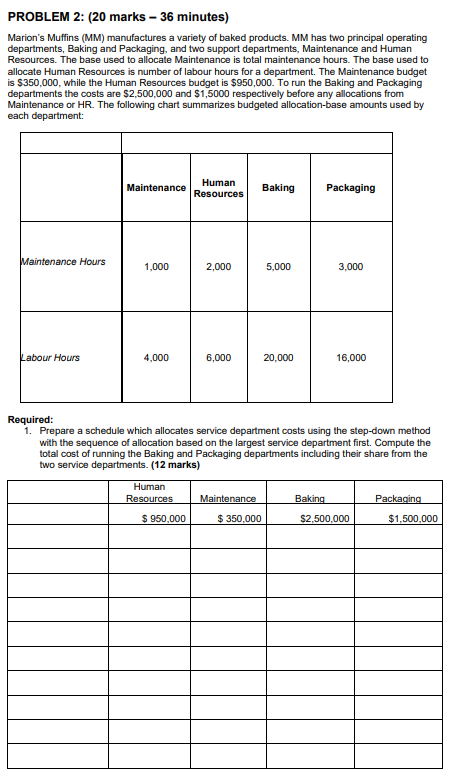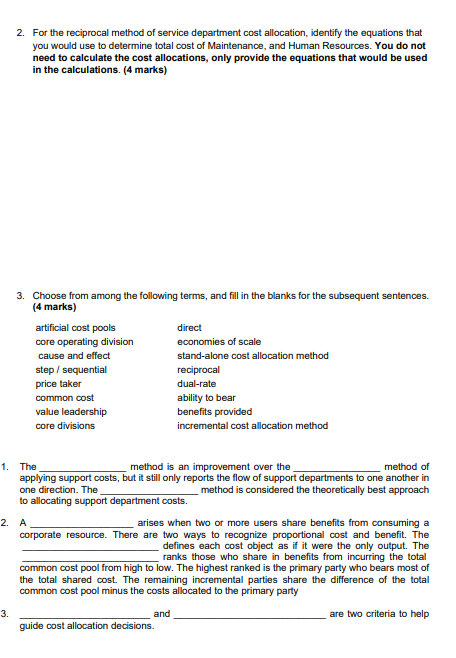

PROBLEM 2: (20 marks - 36 minutes) Marion's Muffins (MM) manufactures a variety of baked products. MM has two principal operating departments, Baking and Packaging, and two support departments, Maintenance and Human Resources. The base used to allocate Maintenance is total maintenance hours. The base used to allocate Human Resources is number of labour hours for a department. The Maintenance budget is $350,000, while the Human Resources budget is $950,000. To run the Baking and Packaging departments the costs are $2,500,000 and $1,5000 respectively before any allocations from Maintenance or HR. The following chart summarizes budgeted allocation-base amounts used by each department: Required: 1. Prepare a schedule which allocates service department costs using the step-down method with the sequence of allocation based on the largest service department first. Compute the total cost of running the Baking and Packaging departments including their share from the two service departments. (12 marks) 2. For the reciprocal method of service department cost allocation, identify the equations that you would use to determine total cost of Maintenance, and Human Resources. You do not need to calculate the cost allocations, only provide the equations that would be used in the calculations. ( 4 marks) 3. Choose from among the following terms, and fill in the blanks for the subsequent sentences. (4 marks) 1. The method is an improvement over the applying support costs, but it still only reports the flow of support departments to one another in one direction. The to allocating support qeparument costs. 2. A arises when two or more users share benefits from consuming a corporate resource. There are two ways to recognize proportional cost and benefit. The defines each cost object as if it were the only output. The ranks those who share in benefits from incurring the total common cost pool from high to low. The highest ranked is the primary party who bears most of the total shared cost. The remaining incremental parties share the difference of the total common cost pool minus the costs allocated to the primary party 3. and are two criteria to help guide cost allocation decisions








